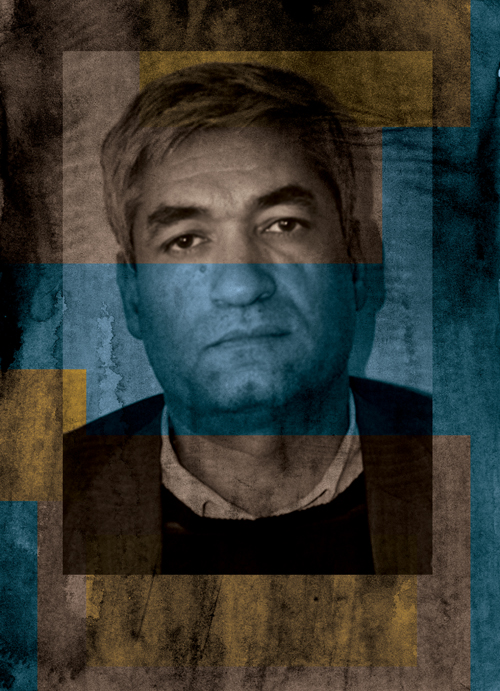A well-known lawyer in Afghanistan, Mohammad Farid Hamidi is Deputy Director of the Afghanistan Independent Human Rights Commission, where he has been a Commissioner for the past 11 years. Before joining the Commission, he was responsible for developing the electoral rules for the Emergency Loya Jirga to elect the transitional administration in 2002. Hamidi also currently serves as chair of the presidential advisory board for senior governmental appointments, and co-founder of the Free and Fair Election Foundation of Afghanistan. He has worked closely with the Judicial Reform Commission in training lawyers and judges on international human rights law and standards.
Have your rights ever been violated, and if so, how did it affect your life?
The first thing that comes to mind is the way the wars have affected my education. I was graduating from high school in 1982. Because of the war, there were no university entrance exams held that year. All of the young people my age were prevented from continuing with higher education: this destroyed our ambitions for the future.Later, in 1990, when I was studying International Relations, the government shut down the Institute of Social Sciences (where I was studying) to merge it with other schools. We organised a non-violent civil demonstration in defence of our rights. But the
government didn’t see it that way: they violently suppressed the demonstration. I spent a year in prison in Kabul for participating in that non-violent student demonstration.
What are the important achievements in Afghanistan today?
The new constitution is a great achievement. Freedom of speech and the development of the media are others. And the creation of proper channels for people to participate in their governance, particularly women, is another great development in our history.
What gives you hope for the future?
I believe that the decades of war and bloodshed in Afghanistan have raised the level of political consciousness in Afghanistan. Rationality has taken the place of raw emotion.
What is your worst fear for Afghanistan?
I am worried about the politicians at the helm of our national policies and developments. They are not in step with the changes in the society; they cling to mentalities of the past. They don’t understand people’s needs and demands in Afghanistan, nor do they comprehend the prevailing international human rights standards and geo-political dynamics.
What are the major challenges facing Afghanistan?
The educational system in Afghanistan is both one of our greatest opportunities and challenges. Education is a highly influential force for shaping public opinion. Our newly established system is still far from proper academic standards. If we want to address the problems in society, we need to start by completely renovating and restructuring our system of education.
Furthermore, we find ourselves in a state of deep distrust as a nation. This is typical for a post-war country, but poses an extreme challenge. How should the government move forward with its policies and civil society with its activities when there is such a pervasive situation of distrust? This is our greatest challenge to overcome.
Is it possible that schools could once again be closed to girls and women excluded from social participation, as was the case under the Taliban?
Afghanistan is not the same country that it was 10 or 12 years ago: this is a fact that needs to be realized and accepted. Today’s Afghanistan will not allow the school gates to be closed to anyone. In the last year, we’ve seen several popular uprisings against the Taliban’s policy of burning schools. The problem is that politicians do not want to acknowledge these changes in our society.
Which factors hinder women’s participation in social, economic, political and cultural spheres?
Despite all the government and non-government action – to reduce violence against women, to increase the representation of women in government departments, in leadership roles and in decision-making – the condition of women in Afghanistan has not fundamentally changed. The patriarchal mentality that permeates all aspects of our culture has a lot to answer for.
What solutions do you see for advancing women’s rights in Afghanistan?
We have succeeded in passing laws that ban discrimination against women and envisage equality between men and women: this now needs to be reflected in social attitudes. This is the way to build a level of trust and understanding between women and men as equal citizens.
What have you done in your personal and professional life to fight against discrimination?
All of our activities at the Afghanistan Independent Human Rights Commission aim to combat violence and discrimination and ensure the protection of people’s rights. I have always stood for these principles in my personal and professional life. Whenever I see the opportunity, I raise issues of women’s rights and discrimination.
Any final messages you wish to share?
Difficult years lie ahead of us in Afghanistan, and wishful thinking will not get us anywhere. Change demands serious work from all of us. We will need to persevere and show firm determination in confronting each and every obstacle in our path.
I also have a message for the families in Afghanistan: Parents, I ask of you, please remember the weight of your responsibility in raising your children. Your children need a proper upbringing, for they are the backbone of a strong and progressive Afghanistan.
“Unveiling Afghanistan, the Unheard Voices of Progress” is a campaign by Armanshahr and FIDH, which explores views held by Afghan civil society actors. Over 50 days, 50 influential social, political, and cultural actors hope to spark conversation and debate about building a society that is inclusive of women’s and human rights in Afghanistan.
Follow 50 interviews drawn from the “Unveiling Afghanistan campaign” daily on the Huffington Post.
Follow Unveiling Afghanistan on FIDH Twitter: www.twitter.com/fidh_en


